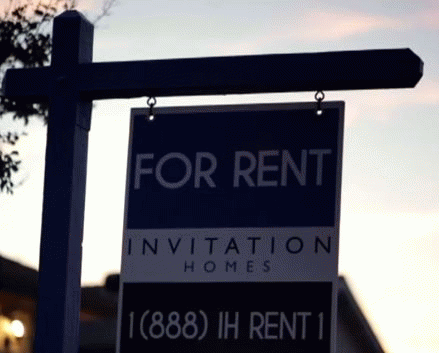If you lost your home when Wall Street investment bankers made a hash of the home mortgage industry, you may be terrified to learn they want to become your landlord.
Up to now most single home rentals have been owned by local owners or regional companies. Private equity firms are taking advantage of loopholes in financial regulation and the depressed housing market to create national home rental corporations. They are scooping up foreclosed homes at fire sale prices all across the country and turning them into rentals. Their ultimate aim is to turn the equity in all those rental agreements into rent-backed securities that can be bought and sold on Wall Street. (Gentlemen, place your bets!)
Under this business model, the equity present in rental agreements will be aggregated into tranches based on confidence in the financial ability of the tenants pay their rent. The collateralized security instruments from these tranches will have various rates of return based on risk factors from the underlying leases. Should these rent-backed securities default, the bond holders may even have an ownership stake in the properties to fall back on. If you haven't heard about this before, you can read more in the Wall Street Journal, the Daily Finance or one of several good articles in Mother Jones.
The initial sale of rent-backed securities by these corporations will allow them to free up equity in these properties to purchase even more distressed homes. If the underlying financial structure of these plans sounds familiar, it should. Substitute mortgage equity for equity in these lease agreements and the securitized bonds are nearly identical to mortgage backed securities that inflated the housing bubble and crashed the economy in 2008. The only element missing so far are the "credit default swaps" inside investors bought to bet that the mortgage bonds would fail.
Hubris is the word that comes to mind when considering that the same class of players who foreclosed on the American Dream now want to be our landlord under these same self-serving schemes.
To be fair, the concept of private equity firms buying distressed houses to fix up and rent does have some merit. Turning vacant houses into renovated rental properties has a positive patina best explained in promotional videos.
Moreover, whenever investment money is applied directly to tangible projects that benefit ordinary families it is always a blessing. It brings jobs, boosts local economies, improves the quality of life and strengthens families.
If Wall Street investors could just be satisfied with the profound social benefits and ordinary financial returns on their investments it would be wonderful. In fact, this is what Wall Street owes Main Street for all the pain they have inflicted. But social benefits are not what they value, and ordinary investment returns are never enough for them. They must relentlessly drive to maximize profits.
Scratch the surface on their nationalized real estate plans and ominous consequences emerge. Ask yourself, for example, what type of landlords will these national private equity firms become?
On April 15, 2014, the grass roots housing advocacy organization, Occupy Our Homes Atlanta (OOHA), published their "grassroots research" to answer that question. They looked at the earliest entrant into this field, the Blackstone Group, which owns Hilton Hotels, the Weather Channel, Sea World and Invitation Homes, a subsidiary that has purchased tens of thousands of homes across the country.
Here is some background on the Blackstone group. It is a private equity firm with global real estate holdings in the U.S., Parts of Europe and China. According to Jon Gray, the Head of Global Real Estate for Blackstone, their real estate holdings make up 60% of their assets, or around $80 billion dollars. It is already the largest landlord in the united states and it sees the distressed U.S. housing market as a growth opportunity.
(Note: You can view every article as one long page if you sign up as an Advocate Member, or higher).







